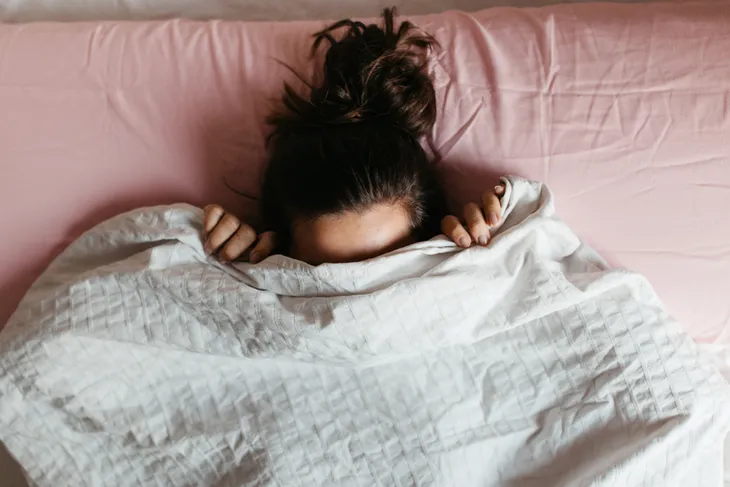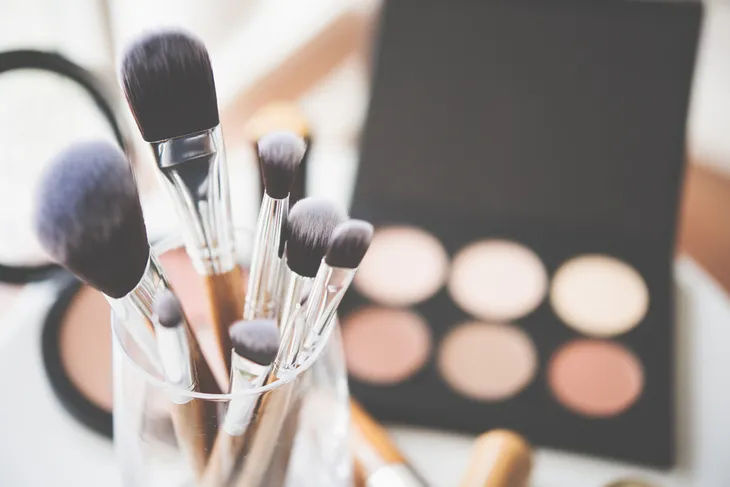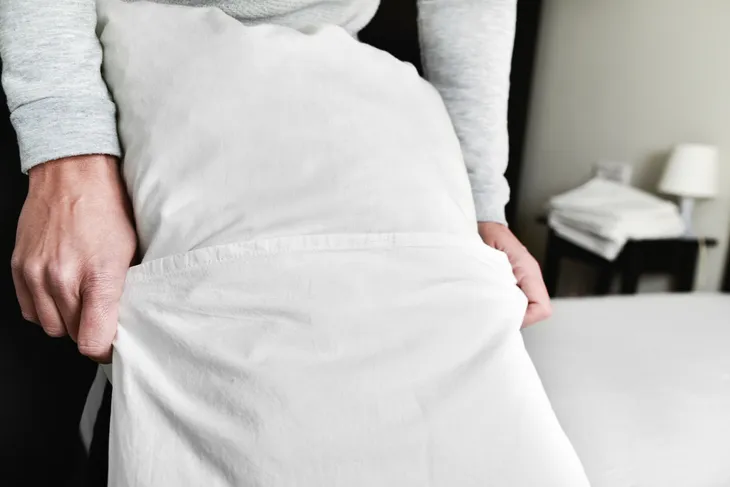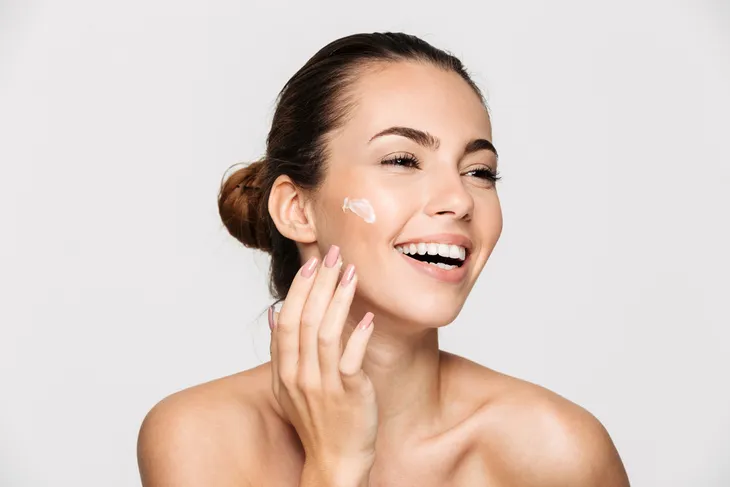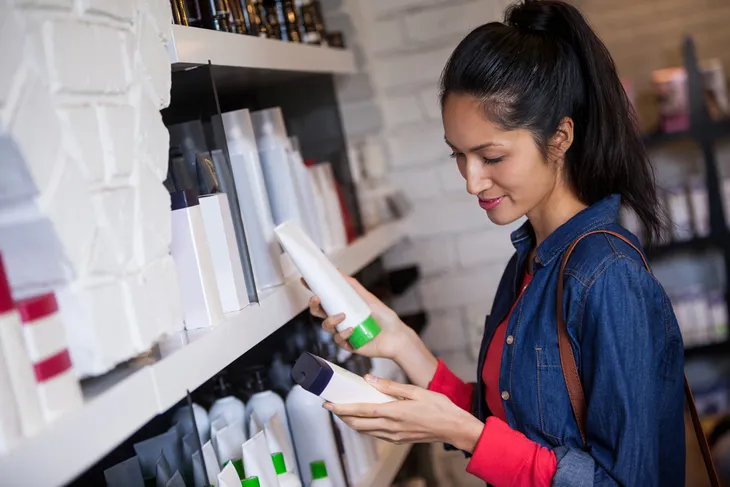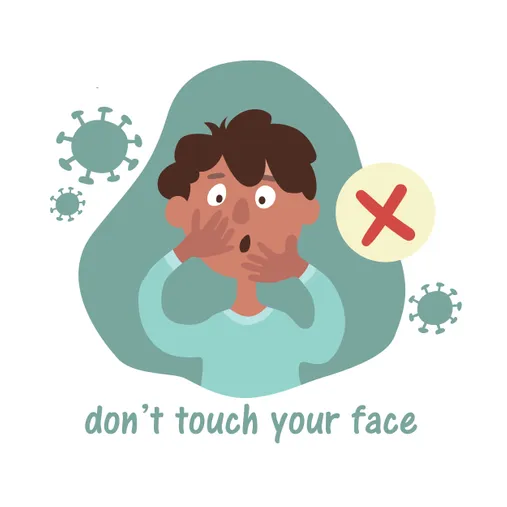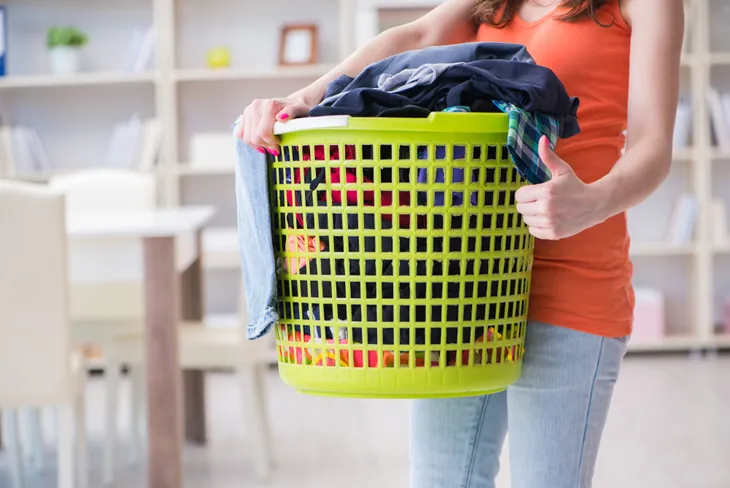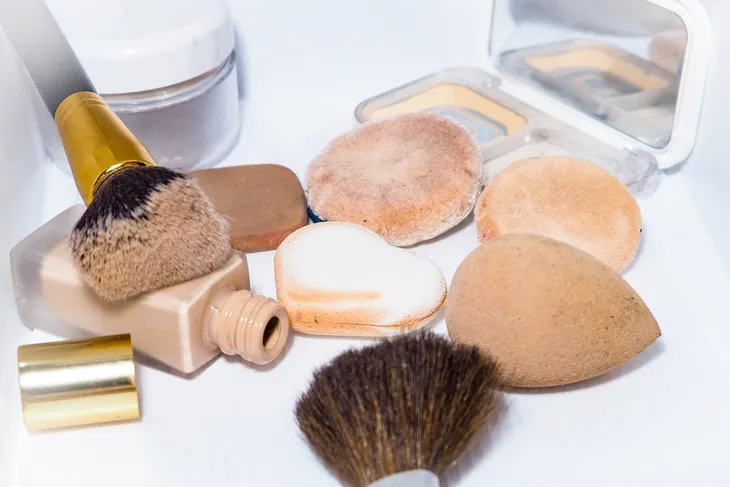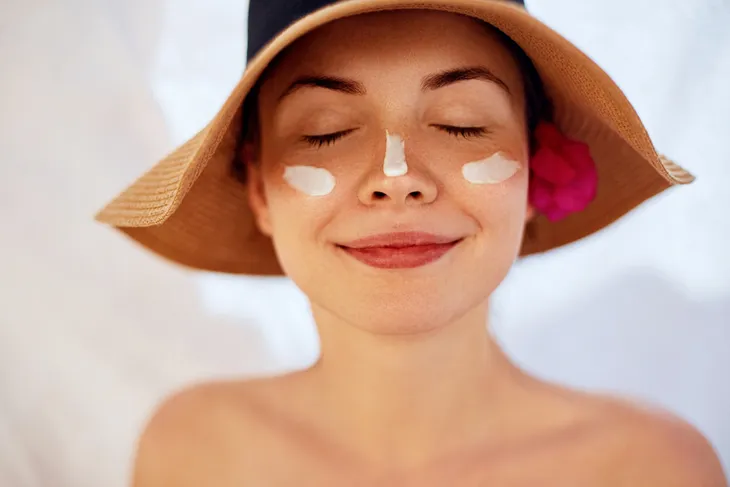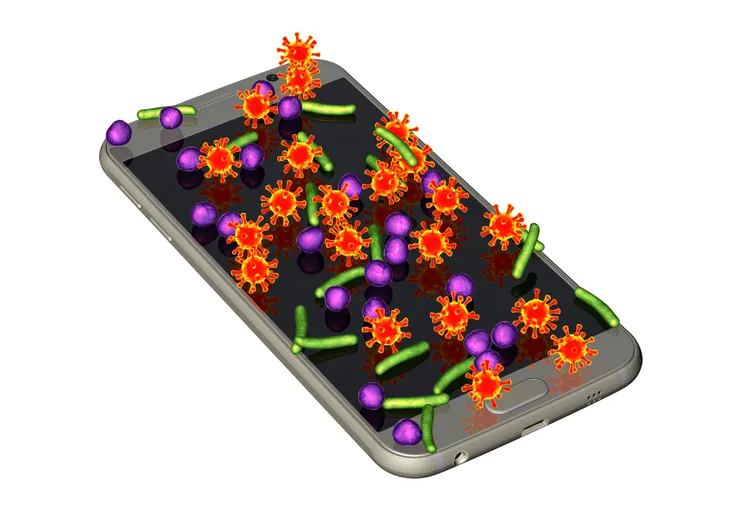Do you suffer from acne breakouts? If so, you’ve probably spent countless dollars on acne creams and gels that promise to help clear your skin. The bad news is you’re probably wasting your money. The good news is, there are ways to prevent future breakouts that won’t cost you a penny.
Acne breakouts often occur because of changes you’ve made to your daily routine. Maybe you’ve started using a different laundry detergent, shampoo, face cream or soap. These are often the biggest culprits of an acne breakout. If you want to keep your skin clear and radiant, avoid breakouts by following these 15 simple tips…
Choose Acne-Friendly Makeup
The makeup you use (and how much you use) has a big impact on the health of your skin. It’s quite ironic that the products you spend a lot of money on to keep your skin looking good, could potentially be clogging your pores and encouraging the pimples you’re trying so hard to hide.
If you’re prone to breakouts, look for products that say “non-comedogenic” on the label. This means that the product is specifically designed not to clog your pores. Clogged pores are one of the leading causes of breakouts. Many dermatologists will also recommend lightweight or oil-free products with a “non-comedogenic” label, which is– which means that makeup won’t clog your pores. Also, avoid heavy, greasy products that contain ingredients like mineral oils and cocoa butter, which can spur pimples.
Change Your Pillowcase Weekly
Forget the $50 bottle of acne cream you’ve been purchasing every month, changing your pillowcase is a proven method for preventing breakouts. All of the sweat, dirt and makeup from your face is seeping into your pillow every night. Particularly if you don’t wash your face before heading to bed, basically you are sleeping in all of the dirt, oil, and debris that collected on your face all day.
If you don’t wash your pillow cases regularly you’re basically planting your face on a pillow of sweat and dirt for 8 hours. Not only will your face stay oily, but the potential for clogging your pores with excess dirt is also very high. Washing your cases will give your face the fresh rest it needs at the end of the day.
Moisturize
If you’ve turned to acne products to control your outbreaks (which most of you probably have), the importance of moisturizing becomes a key component in keeping your breakouts at bay. Most acne products contain ingredients that dry out the skin, thus, moisturizing immediately after is critical. Make sure you hydrate your skin with water before applying the moisturizer.
Daily moisturizing is an essential part of keeping acne at bay by clearing away excess oils, dirt, and makeup that collect on your skin day and night. Also acne treatment tends to be drying, so moisturizer will combat this. If you are oily or acne prone, look for lighter or water based formulations that won’t feel heavy.
This is why morning and evening cleansing and moisturizing is important. If the acne treatment your dermatologist prescribed contains benzoyl peroxide or other drying ingredients that can zap your skin of the moisture, a light moisturizer that contains glycerin or hyaluronic acid will aim to keep moisture locked in your skin to prevent redness, drying, and flaking.
Review Your Shampoo
Have you noticed that you’ve been breaking out a lot more than usual lately? You might want to check your shampoo. Shampoos and conditioners with a lot fragrances and chemicals can irritate skin and cause breakouts on your forehead, jaw, neck and back.
Considering using non-fragrance products (or all-natural products) and always make sure you rinse the shampoo out of your hair completely before washing your face in the shower. Organic products without added chemicals, oils, and fragrance may also provide a lightweight wash and a natural smell without causing breakouts. Make sure to wash your face after rinsing your hair to get rid of lingering shampoo and conditioner residue.
Stop Touching Your Face
You might notice that people who touch their face often are prone to breakouts. This is because the oils and dirt on your hands are constantly transferred to your sweet visage. This might seem like common sense but keeping your hands away from your face is harder than you think.
If you’re sitting in class or at work, chances are your head is resting on your hands and your fingers are running up your cheeks. You might also twist your lip or finger your chin, leaving those areas prone to breakouts. The more you touch, the more irritation and breakouts can result. Keeping your hands and fingers off your face will keep it clean and healthy and help eliminate future breakouts.
Check Your Laundry Detergent
Much like shampoos, laundry detergents can be a huge culprit when it comes to breakouts. If you’re experiencing more breakouts than normal it could very well have to do with the ingredients in your detergent. Many soaps contain harsh chemicals and fragrances that can irritate skin (especially when you use towels to dry your face).
What’s worse is that a full cycle might not completely wash away laundry detergent residue. Especially if you don’t have a soft water system, you may get traces of soap on your face and body every time you put on and remove clothing. Try switching to a non-fragrance detergent or one with more natural ingredients and see if you’re breakouts start to fade.
Go Easy on the Makeup
This may be hard for some girls (especially those in high school) but lightening up on the makeup will almost certainly help control your breakouts. Not only are the ingredients in most makeup products bad for your skin but applying makeup means touching your face, which can lead to a breakout.
If you must wear makeup, try adding a dab of liquid foundation to an all-natural moisturizer, which will help hydrate the skin instead of drying it out. Also, choose to go makeup free when you can. Wash, cleanse, and moisturize your face in the morning using lightweight products and leave your face without makeup so your pores can breathe easy for a few hours.
Stay Out of the Sun
A little bit of sun has been known to reduce breakouts but too much can cause damage to your skin and prompt a breakout. If you’re planning a weekend at the beach, be sure to load up on sunscreen and moisturizer–these will help keep your skin hydrated and protected from the sun which will equal less breakouts this summer.
However, like moisturizer, choose a lightweight sunscreen specifically for use on your face. These “face” specific sunscreens often don’t contain added oils, fragrances, and chemicals that will put a heavy layer on your skin and clog up your pores. Remember, when you use heavy products and sweat, you often trap perspiration, oil, and dirt under beauty products and block the pores, which causes acne.
Exercise
Exercising daily will not only help you look and feel better but it will also help reduce the frequency of your breakouts. Working out increases the blood flow through the body which will keep your skin looking healthy and radiant. Plus, when you workout, you perspire more regularly, which means you eliminate dirt, toxins, and chemicals a lot more efficiently.
More efficient perspiration in addition to hydrating more often will also prevent acne. As you drink more water and perspire, sweat is cleaner and clearer, which will also help prevent pore blockage, oily skin, and acne breakouts.
Reduce Stress
Staying calm and happy has actually been proven to help control breakouts. Acne often appears when someone becomes stressed out or worried about something (perhaps you’re worried about breaking out) and tends to spread faster in these circumstances as well. The best thing to do is to keep calm and try not to sweat the small stuff. In doing so, you’ll feel and look better.
In fact, dermatologists at the University of Texas Southwestern Medical Center, suggest that acne prone individuals experience acne flare ups when they are exposed to stressful situations. And although emotional stress won’t trigger breakouts, stress potentially worsens an existing skin disorder.
Eat Healthy
An unhealthy diet has always been linked to acne. While many studies fail to prove a direct link between the two, doctors and health experts agree that maintaining a healthy diet can go a long way in preventing breakouts. Also, you may not know it but you might have a small allergy to some foods (dairy is a common one) which can spark an immune system response starting with acne or skin problems.
Diet that has been associated with acne includes dairy, high saturated food, and high glycemic index foods. All of these leads to inflammation and potentially increase growth hormones (like dairy) that are associated with more acne.
Quit Smoking and Drinking
Hopefully, this will be an easy one for most of you out there (because hopefully you don’t do either of these things to begin with) but if you do smoke or drink you should seriously consider quitting. Smoking and drinking dehydrate the skin, making it much more prone to breaking out.
Plus, touching your face when your bring a cigarette to and from your lips will leave oils and dirt on your face to potentially clog your pores and cause pimples. Eliminating these bad habits from your daily routine will help your skin stay clear and your body stay healthy. A win/win, don’t you think?
Drink Water
We mentioned this in an earlier slide but drinking water is an easy (and cost-effective) way to keep your breakouts at bay. Drinking water not only hydrates your skin but it eliminates all of the unhealthy toxins from your body–some of which may have been the cause of your earlier breakouts.
Consuming at least 8 glasses a day will keep your skin looking radiant and glowing everyday. And combining healthy hydration with regular exercise will prevent breakouts by eliminating excess toxins and oils via perspiration. Your skin will become healthier, less oily, less dry, and less prone to pimples as a result.
Clean Your Phone
Most teenagers spend countless hours on their cell phones every day. What you probably don’t know is that this little cellular device is one of the newest causes of acne breakouts. Why? Because all of the dirt from the face of your phone (the phone you’ve been touching with your filthy fingers all day long) seeps into your face every time you press your phone to your head.
Your makeup rubs off on the face of the phone and is then transferred back onto your face the next time you use it. To prevent breakouts, clean the part of your phone that touches your face regularly and that will, in turn, keep your face clean as well.
Sleep on Your Back
This is another cost-efficient and effective way to keep breakouts from happening. Sleeping on your back means that your face is free from the fabrics on your pillow and free from your fingers and hands. When you sleep on your stomach, your face is pressed up against the fabric of your pillow which can irritate the skin.
Likewise, when you sleep on your side, half of your face is either pressed against the pillow or pressed against your hands which you’ve placed in between your pillow and your face. Keeping your head from being touched by anything during the night will help breakouts from forming – and it doesn’t cost you one single cent.
